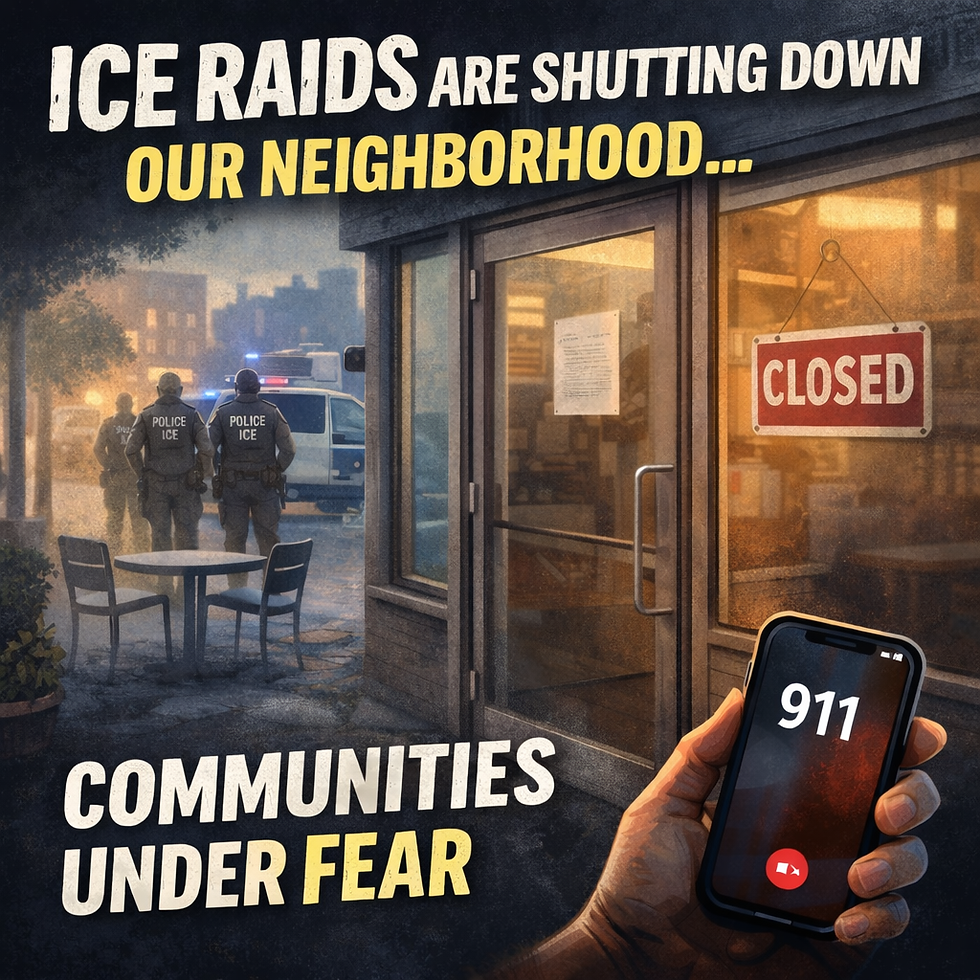When The House Is On Fire
- Jeremy Bratcher

- Sep 30, 2025
- 3 min read
I can’t shake a picture from my mind lately.
It feels like standing on the sidewalk, looking at my neighbor’s house.
The windows glow orange. Smoke curls out the eaves. Flames are beginning to swallow the roof. And my neighbor is inside.
I shout, “Your house is on fire!”
He yells back, “Don’t judge me. I like the warmth.”
I reach for my phone to dial 911.
He says, “Don’t you dare. It’s none of your business.”
So I stand here, torn.
Do I stay quiet, pretending nothing’s wrong? Or do I risk the relationship — risk offense, risk being hated — to tell him the truth that could save his life?
That’s what these days feel like.
The Tension We Live In
After the killing of Charlie Kirk, I’ve seen the phrase “We’re not the same” over and over again on social media.
Some are using it to say, “You grieve his death; I don’t.”
Others use it to draw the line between “people like me” and “people like him.”
Others have drawn distinctive differences between rioting and protest against rallying and remembrance.
It’s a declaration of division: we don’t share values, so we don’t share humanity.
But when the house is on fire, it doesn’t matter whether we’re “the same” or not.
Flames don’t discriminate. Fire consumes everything. Memories and memorabillia turn to ash. Destruction doesn’t care about political tribes, sexual identities, or personal preferences.
If anything, moments like this should remind us of what is the same: our shared fragility, our shared mortality, and our shared need for mercy.
Why the Metaphor Matters
Truth-telling is not cruelty; it is compassion.
The unloving act is to let someone burn because you were too afraid of being misunderstood.
Scripture gives us three strong pictures of this:
Ezekiel called it watchman work —
“So you, son of man, I have made a watchman for the house of Israel. Whenever you hear a word from my mouth, you shall give them warning from me. If I say to the wicked, ‘O wicked one, you shall surely die,’ and you do not speak to warn the wicked to turn from his way, that wicked person shall die in his iniquity, but his blood I will require at your hand.” (Ezekiel 33:7–8)
Jude called it mercy —
“Save others by snatching them out of the fire; to others show mercy with fear, hating even the garment stained by the flesh.” (Jude 23)
Jesus embodied it —
“So Jesus said to the Jews who had believed him, ‘If you abide in my word, you are truly my disciples, and you will know the truth, and the truth will set you free.’” (John 8:31–32)
But here’s the rub:
The people in this burning house don’t want to be rescued. They’re comfortable. They’re defensive. They’re convinced they’re fine.
And anyone who raises the alarm gets branded intolerant, judgmental, bigot, or worse.
Still — love alerts, even when it costs.
A Way Forward
In this cultural moment, the louder cry shouldn’t be “We’re not the same.” It should be, “We’re all at risk, and we all need rescue.”
The real difference isn’t between me and you.
The real difference is between flames and freedom, destruction and deliverance.
And that difference is not something we achieve. It’s something God gives.
Sound the alarm. The house is on fire. This is love.







Comments